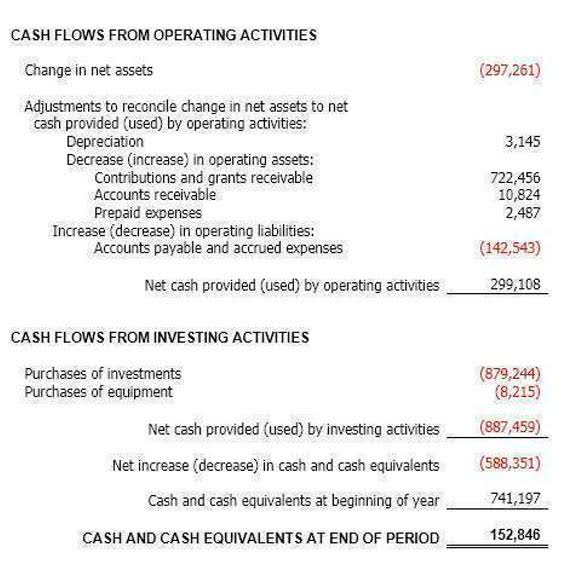
Buried in paperwork, tangled in compliance forms, and constantly tracking financial details? Our team of experienced professionals offers local bookkeeping services that cater to the specific needs of construction companies in Los Angeles, Orange County, and beyond. Proper expense categorization is crucial for accurate job costing and financial reporting.
Difficult to Predict Profitability
We can help you take the right approach to managing your successful construction business and ensure you’re generating enough revenue to cover all costs while still turning a profit. Construction bookkeeping is the backbone of financial management in the dynamic and project-centric construction industry. Efficient bookkeeping is not just about recording transactions; https://www.bookstime.com/ it’s a strategic tool that can make or break a construction business. Our bookkeeping services can help you save valuable time by automating manual tasks, providing real-time financial data, and enabling efficient workflow. With our support, you can manage your finances with ease and focus on project completion.
- These concepts address every aspect of work in the construction industry, including job estimates, unique billing structures and methods, and revenue recognition.
- As a result, they can better distribute funds and make intelligent financial choices.
- It is a way to forecast a project’s costs by estimating things such as contractors, materials and supplies, and overhead.
- That’s why our bookkeeping service construction industry come with a flat monthly fee, so you can rest assured that you are receiving excellent financial management services without any hidden costs.
- Your cost of goods sold section should clearly show direct project costs, including materials, labor, subcontractor expenses, and equipment costs directly attributed to projects.
- This detailed tracking allows you to maintain tight control over project costs and make informed decisions about resource allocation.
Maximize profitability with construction-focused accounting software. Contact a Deltek ComputerEase expert today.
- These reports aid construction companies in understanding their economic standing and making informed decisions to maximize profits and financial stability.
- By applying all the common construction mistakes in this guide to your current bookkeeping process, you can avoid catastrophic errors.
- Identifying these variances early allows for timely intervention and corrective actions.
- You might even use different billing methods for different projects simultaneously, making it essential to have robust accounting systems that can handle multiple billing types.
- Because of this, they can make intelligent choices based on data that is updated in real-time.
- However, you can choose to outsource bookkeeping services if you need some additional help.
For construction businesses of all sizes, from independent contractors to large firms, implementing effective construction accounting practices is crucial for financial stability, growth, and long-term success. If, as a construction business owner, you too are looking to maximize your financial control and profitability, it is essential you get the right construction accounting software installed. Integrity Software is a construction-specific accounting and management solution.

Construction Accounting vs. Regular Accounting

Reporting requirements for a particular union may exist on a national or a local level. Contractors can typically determine their requirements, especially when entering another jurisdiction, by checking with their local union business manager. With unit price, risk tends to be shared between the contractor and customer since production quantities can end up higher than estimated. And while private companies don’t have a formal obligation to use GAAP, many choose to follow its best practices. While CCM is an accrual method, it differs from other accrual approaches in when revenue is recognized. As a result, the cost and availability of production inputs can fluctuate and require careful tracking and planning.

Record Day-to-Day Financial Transactions
The main difference between construction accounting and general accounting is that construction accounting is project-based. Project-based accounting focuses on transactions that are specific to that project. It allows construction firms to accounting and bookkeeping for construction companies assess the financial implications of completing certain projects and plan their completion while meeting contractual parameters.
- You must have checks and balances in place to ensure your automations are happening correctly.
- Rates can change and vary often, so it’s important to remain up-to-date on the latest information to ensure compliance.
- A cloud-based accounting solution, FreshBooks comes equipped with a host of project-based accounting tools and functionalities to help construction businesses optimize their cash flow management.
- Problems arise when the overhead rate employed is incorrect and does not provide an accurate description of the company’s current overhead costs.

PCM recognizes revenue and corresponding expenses based on the estimated percentage of a project completed at a given time. This method contrasts with CCM, which recognizes revenue only upon full project completion, and the installment method, which recognizes revenue in proportion to cash collected. Clear and detailed construction contracts are crucial for defining the scope of work, billing methods, payment schedules, change order procedures, and dispute resolution mechanisms. Contractors can get to the most recent financial records whenever they need them using construction bookkeeping software. Because of this, they can make intelligent choices based on data that is updated in gross vs net real-time.

- This can make it difficult to track expenses and effectively calculate the profit generated from each service category.
- Construction accounting software is a technological tool programmed to help builders or contractors manage and monitor their financial data, one key project at a time.
- Outsourcing allows businesses to scale their accounting needs according to what they need at that time, which increases their flexibility.
- We address this by carefully tracking project progress and evaluating both direct and indirect costs to ensure precise job costing.
- So for example, if you have $200,000 in overhead expenses for the previous year and $1,000,000 in direct job costs (COGs) you would have 20% overhead using the direct job cost method.
Accounting for the different moving pieces of contracts and projects can be daunting. Our team organizes your spending and bank accounts to create a single, easy-to-read balance sheet. This allows you to quickly analyze your company’s financial standing and make informed decisions about your projects. One of the mistakes of starting a business is mingling personal and business funds. This makes it difficult to track expenses and can create legal problems down the road. To avoid this, open a business bank account as soon as you start your construction company.
Choose the Right Accounting Method
The quick ratio, also known as the acid test ratio in construction business accounting, provides an even more conservative measure of your liquidity. On the asset side, you’ll need to carefully track accounts like equipment investments, which might be significant in construction. Your current assets will include items like materials inventory, which can fluctuate substantially based on project needs and market conditions. Your job cost sheets should include the original budget for each cost category, actual costs incurred to date, and variance analysis comparing actual versus budgeted amounts. This level of detail helps you identify cost overruns quickly and make informed decisions about resource allocation.





